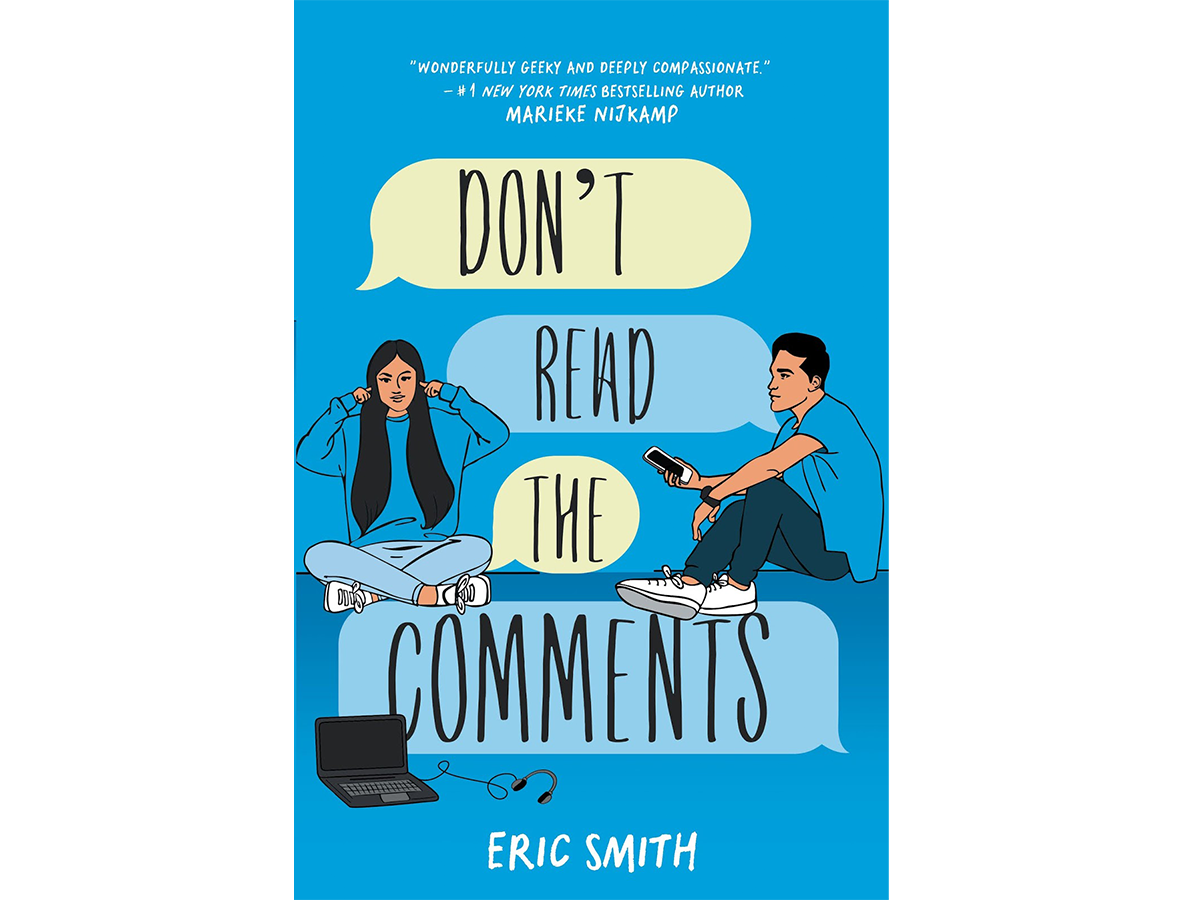[Spoilers ahead]
Written by Philadelphia-based author Eric Smith, Don’t Read the Comments takes readers on an exciting trip through the world of online gaming. The novel follows Divya, a bourgeoning streamer for popular game Reclaim the Sun, and Aaron, an aspiring video game developer, as our two main characters navigate the minefield of toxicity that is often found in the video game community and industry. Don’t Read the Comments brims with topical references and dorky jokes, capitalizing on the quirky nerd culture that resonates with so many people, young and old. However, while it’s billed as a YA novel, Smith refuses to soften the realities that many adolescents and adults have to face when spending time online: sexism, misogyny, racism, and doxxing. Additional themes of intellectual theft, representation, and ruthless working conditions are all issues that can be found in today’s video game industry. The characters themselves are convincing and compelling, each with distinctive voices that are easy for readers of all ages to connect with.
Divya, better known for her online persona D1V, is a refreshingly dynamic female protagonist who earns money streaming herself playing video games on the popular streaming website Glitch—no doubt a nod to the real-life streaming website Twitch. The sponsorships and revenue she earns through her online persona help support herself and her mother, who is several classes away from receiving her graduate degree in Library Science. She plays alongside her close friend Rebekah, who helps edit highlight videos and creates other content for Divya’s fans, the Angst Armada. Divya’s unwavering commitment to her family and friends is evident throughout the book, from standing up for Rebekah when a group of boys harass her and their local pizza place to enduring targeted attacks, both online and in-person, by internet trolls. She is genuine, supportive, and socially conscious, a phenomenal role model for younger readers.
Aaron, our other protagonist, is a seventeen-year-old who lives in Philadelphia with his father, a Palestinian immigrant, who together help run his mother’s medical practice. Aaron aspires to write scripts for video games, working alongside a few close friends on a mobile app for local gaming company, ManaPunk (Yes, just like Manayunk). He hopes to attend college for writing with the money he makes from games, much to the chagrin of his mother, a prominent doctor in Philadelphia. Adding to her frustrations is the lack of compensation for Aaron’s non-contractual efforts at ManaPunk—a common reality for video game designers who work at cash-strapped start-ups. In the New York Times article ‘Making Video Games is Not A Dream Job’, Jason Schreier notes that many designers are paid under the table or never paid at all while being overworked under strict deadlines and poor conditions. As Smith’s story unfolds, Aaron’s relationship with ManaPunk parallels the realities of many workers within the industry.
The main plot of the story kicks off shortly before Divya and Aaron meet, as a group of male gamers become aggravated by what they see as D1V’s “undeserved” fame and form a collective dubbed Vox Populi. The online army, built on misogyny to protest women in gaming, coordinates attempts to sabotage Divya and her in-game armada: destroying ships, taking supplies, ultimately ruining Divya’s progress and her income. It is during this time that Aaron and Divya cross paths while playing Reclaim the Sun.
Eventually, clips of the Vox Populi attacks begin to go viral and those in the mainstream begin to take notice. Members of Vox Populi, emboldened by their newfound fame and support, coordinate out-of-game attempts to harass Divya. They threaten to “doxx” her—a term meaning to publish an individual’s personal information on the internet—followed by escalating attacks that culminate in a group ambushing her mother with eggs. Aaron gets caught in the line of fire as well; his involvement with Divya results in losing his job at ManaPunk, as even they fear the retaliation of the internet trolls.
It is not until Divya decides to lead a panel on women in gaming at New York’s gaming convention that the threat of Vox Populi is squashed. In coordination with local police, Divya hatches a plan to ultimately catch the ringleaders of Vox Populi and bring them to justice. Aaron is simply there to offer his support and meet Divya in person for the very first time. This was one of my favorite aspects of the story: while the characters often lean on one another for emotional support, both are respectful of the other’s boundaries. It is a refreshing reminder that not all people need or want saving. We should bolster and support those closest to us so that they overcome their challenges, but only when we have the context to do so. Divya does not need Aaron to be her hero—just her friend.
Readers with overlapping interests in gaming, nerd culture, and social justice will adore this book. Smith navigates the very adult realities of online gaming with ease and grace, showing the diversity that comes from global connectivity while eschewing preconceived notions of what the gaming community is. As gaming moves away from a “boys-only” mentality, Don’t Read the Comments demonstrates to readers that the future of gaming is bright, even when the present can seem so bleak.
Don’t Read the Comments
By Eric Smith
Inkyard Press
Published on January 28, 2020
368 pages

Charles Massey is a senior at Drexel University studying Anthropology and pursuing a Certificate in Writing and Publishing. He enjoys reading, writing, supporting Liverpool Football Club, and walking his dogs down by the Schuylkill.
